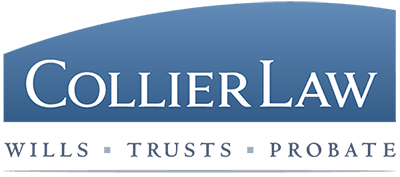Consider a Trust
Advantages of Revocable Living Trusts
Avoidance of Probate
In particular, a revocable living trust can avoid multiple expensive and time-consuming probate proceedings when you own real estate in different states, as well as avoid the publication of the otherwise private financial details of your estate. Often the cost of settling a trust is substantially less than the cost of settling a will.
Avoidance of Conservatorship
A revocable trust can avoid the additional cost of a court-monitored conservatorship in the event of your incapacity, and can privately establish those individuals who will assist you with managing assets.
Efficient Distribution
A revocable trust can reduce delays in distributing your property after you die. A Trustee can generally take control of your assets and begin paying pending bills quickly and more efficiently than in probate. A trust also avoids the demanding timeline and numerous documents required by the probate courts.
Confidentiality
Generally, the terms of your revocable living trust and your assets are confidential, with only your named beneficiaries and trustee having access to that information.
Continuity
A trust can provide for a smooth continuity of management of your property in the event of your incapacity or death.
Flexibility
A well-written trust can deal with asset protection issues including shielding assets for your beneficiaries in the event of lawsuits, creditor issues, or divorce. A well-written trust can even help a beneficiary maintain eligibility for government benefits while also receiving their inheritance. Minors who are set to receive funds from the trust may have the funds managed by an adult you designate until the minor reaches a particular age.
What are the drawbacks of a revocable living trust?
Expenses of Planning
A revocable living trust is more complicated than a will to draft, and asset transfers can take time and can result in additional costs. However, these costs are often offset by avoiding the probate process.
Expenses of Settlement
Many people choose family or friends to handle their affairs upon incapacity or death. However, if you appoint a bank or trust company as trustee, you will have fees to pay (though these may take the place of investment advisory fees and other fees you are already paying). As a note, setting up a revocable living trust instead of a will does not eliminate the need for professional services of attorneys and accountants in the future.
Ongoing Diligence
Once the trust is established, you must be sure that all assets are properly titled to the trust, as well as the assets you acquire in the future. Individuals dealing with the trustee (such as banks and title insurance companies) may want to review certain provisions of the trust to confirm the trustee’s powers and duties. Collier Law walks with clients through this process to help confirm each of these pieces is completed. We also serve as an ongoing resource for our clients as they acquire new assets in the future.
Complexity
Revocable living trusts often are more complex than wills and require you to pay a bit more attention to your assets going forward.
Unforeseen Problems
Revocable living trusts can raise a variety of new challenges regarding the ability to borrow against property, title insurance coverage, real estate in other countries, Subchapter-S stock, certain pension distributions, and other issues. Only an attorney who focuses their practice on estate planning should tell you whether a revocable living trust is the best estate planning tool for you, your beneficiaries, and your assets.
